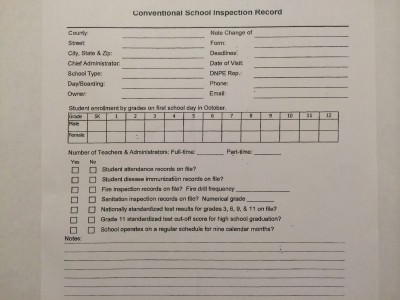Thursday, February 6, 1868
The Convention was called to order on Thursday at 10 o’clock, Mr. Pres. Cowles in the Chair.
The report of the Executive Committee on the first article of the Constitution was taken up. The question recurred on the motion Dto amend section 1, by striking out two and inserting three years, Mr. Jones, of Washington, having the floor. Mr. Jones of Washington, moved to amend by striking out three and inserting four.
Mr. Jones spoke on the issue of increasing the term of office for all elected state officers to four years*:
I respect long continued customs as much as any one, but a change that is an advantage should be made. I do not believe that frequent elections always promoted the stability of republican government, because of the fierceness of party wrath. At least the Superintendent of Public Instruction should hold over four years, that he might be able to accomplish something substantial. Experience had taught us that officers for a short term began to electioneer for re-election, and thus neglect their duties. The public interest was neglected. Besides, the Republican party needed such a term of years to establish itself firmly. It was not too long for the great work of organizing new ideas and to give the people time to consider and to approve. A party is being organized inimical to this great party, and it behooved the members of it to decide wisely, for the future perhaps depended upon their action today.
After this speech, delegates choose to extend the term of all state elected officers to four years on a vote of 62 to 37.
Once again, the Convention considered issues of divorce. Mr. Harris called up the petition for divorce of Ann Underdew from her husband Gilliam Underdew, when
Mr. Harris asked its reference to a select committee. He said that Gilliam Underdew had married his wife Ann, and defrauded her of eight hundred dollars of her hard earnings, run away and again married in Ohio. They were free persons of color, and married in 1858. She was a woman of unblemished character, had been cruelly treated and now feared that should she die, the balance of her property might be claimed by her unworthy husband. If referred, he was confident she could make such statement before the committee as would induce the Convention to grant the divorce.
Mr. Ashley favored the reference. He desired a full report on the whole subject. If divorces were granted here, the desks of delegates would be covered. But this matter might be referred for a full and fair report on this subject. No doubt it was a case of hardship, but let the whole affair, with all similar cases, pass over to the Legislature finally, where such provisions could be made in the law as would be liberal and just.
Mr. King of Lenoir, said he hoped the Convention would perform its legitimate duties. If one divorce was granted, twenty thousand would pour in. It was out of the question.
The motion to refer was put and adopted.
On motion the bill of rights was made the special order for Saturday 12 M.
Resolution by Mr. Congleton, that the Convention consider first the constitution and then relief, before other business.
After considering various ordinances and resolutions, on motion the convention adjourned.
Resources
Ferrell, Joseph, ed., Compilation of the Official Report of the Proceedings of the Convention (Chapel Hill, N.C.: unpublished manuscript 2007). (See day 8 for fuller explanation of this resource.)


